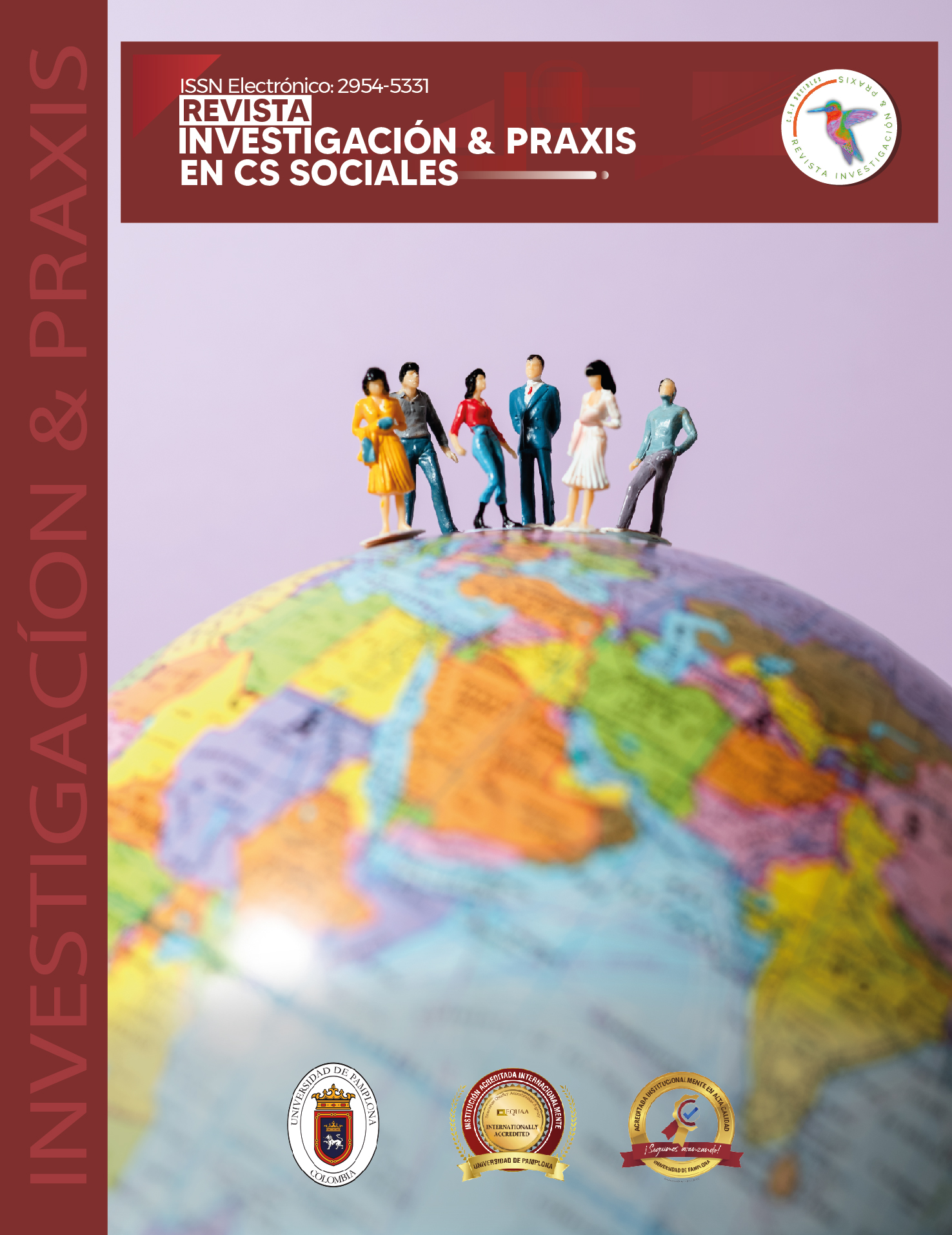Análisis sobre la pertinencia de la formación sociohumanística, una mirada desde el contexto de la Universidad de Pamplona
DOI:
https://doi.org/10.24054/ripcs.v1i2.2255Palabras clave:
Formación Integral, Paradigma Tradicionalista, Formación Humanista, Formación Socio – HumanísticaResumen
La presente investigación se formuló con la intención de realizar un análisis de la situación actual de la Universidad de Pamplona respecto a la formación Socio-Humanística que se desarrolla, así como su pertinencia epistemología para la preparación de profesionales integrales, para ello se ha realizado un análisis teórico y documental de los contenidos programáticos de las materias que se relacionan con dicha formación, así mismo, se realizó un análisis teórico y comparativo del paradigma tradicionalista vs el paradigma humanista en el contexto de la Educación Superior de los profesionales del siglo XXI. Para realizar la indagación pertinente se aplicaron encuestas de carácter mixto, es decir, de preguntas con opción de análisis cuantitativo y cualitativo, la estructura del instrumento cumple con dar respuesta a las categorías previamente formuladas, su aplicación se realizó a 12 estudiantes y 4 docentes, seleccionados de manera intencional cumpliendo con la condición de pertenecer las materias de Derechos Humanos y Mediación de Conflictos, Educación Ambiental, Ética y Formación Ciudadana y Cultura de la Paz en el semestre 2022-1 de la Universidad de Pamplona (Vega H.A & Martínez. O. 2021). Los objetivos trazados para el devenir investigativo se centraron en seguir un proceso sistemático de identificación de fundamentos epistemológicos, descripción de las estrategias pedagógicas de los docentes e indagación de la visión de los estudiantes frente al desarrollo de las materias de Formación Socio – Humanísticas de la Universidad de Pamplona. La metodología de análisis seleccionada se formuló bajo un sistema de categorías que facilitó el análisis de los resultados y los hallazgos obtenidos de la aplicación de instrumentos con lo cual se logró correlacionar para concluir los aspectos positivos y negativos de la formación Socio - Humanística en el contexto actual de la Universidad de Pamplona.
Referencias
Arango, A. (2008). La formación ciudadana en Colombia. Medellín: Facultad de Educación, Universidad de Antioquia.
Bonilla, E. (2018). La cultura de paz y su importancia en el proceso de formación ciudadana en el contexto educativo colombiano. Varona. Revista Científico Metodológica.
Calva, M. L. (2006). El Humanismo en la práctica docente. México: Trillas.
Campo, R., & Restrepo, M. (1999). Formación Integral: Modalidad de educación posibilitadora de lo humano. Bogotá: Pontificia Universidad Javeriana.
Farías, F. (2009). La epistemología de las ciencias sociales en la formación por competencias del pregrado. Concepción, Chile: Universidad del Bío-Bío.
Gómez, T., & Dublanqui, F. (2019). Incidencia de la formación socio-humanística en el contexto universitario de la ciudad de Bogotá, DC. Bogotá, Colombia: Universidad Gran Colombia.
Hernández, I. (2012). Investigación cualitativa: una metodología en marcha sobre el hecho social. Revista Rastros Rostros, 14(27), 57-68.
Herrera, J., & Molano, A. (2014). A Formación ambiental en la educación superior: una revisión necesaria. Universidad de Caldas: Luna Azul.
Martínez, M. (2008). Epistemología y Metodología Cualitativa en las Ciencias Sociales. México: Trillas.
Muñiz, C., & Robles, C. (2020). El humanismo en la práctica docente de las instituciones de educación superior. México: Fundación Universidad de Palermo.
Muñoz, J., Herrera, D., & Bierman, E. (1986). La formación socio humanista en UNISUR -Bogotá. Revista Sociedad, Educación y Desarrollo, 150.
Peñafiel, M., & Vallejo, A. (2018). Educación ambiental en las universidades, retos y desafíos ambientales. Guayaquil -Ecuador: Universidad de Guayaquil.
Ramírez, G., & Prada, R. (2020). Pedagogía crítica en la formación ciudadana: caso Universidad de Pamplona. Cúcuta: Universidad Francisco de Paula Santander.
Ramos, G. (2006). La formación humanística como componente de la formación integral del profesional universitario. Cuba: Artigos-Universidad de Matanzas de Cuba.
Rodríguez, J. (2013). Una mirada a la pedagogía tradicional y humanista. Presencia Universitaria.
Rojas, G. H. (1998). Paradigmas en Psicología de la Educación. México: Paidós Educador.
Taylor, S., & Bogdan, R. (1989). Introducción a los métodos cualitativos de la investigación. Barcelona: Ediciones Paidós Ibérica S.A.S.
Velasco, J. H. (2013). Las universidades colombianas y la formación integral de sus estudiantes. Bogotá: Universidad Militar Nueva Granada.
Villa, H. (2019). Importancia de la formación ciudadana en el currículo universitario. Revista de investigaciones Universidad Católica de Manizales, 126.
Villagra, A. (2021). La Formación Humanística y la Responsabilidad Social del Estudiante Universitario de la Macro región sur del Perú. Perú: Universidad José Carlos Mariátegui.
Publicado
Número
Sección
Licencia
Derechos de autor 2022 Revista Investigación & praxis en CS Sociales

Esta obra está bajo una licencia internacional Creative Commons Atribución 4.0.










